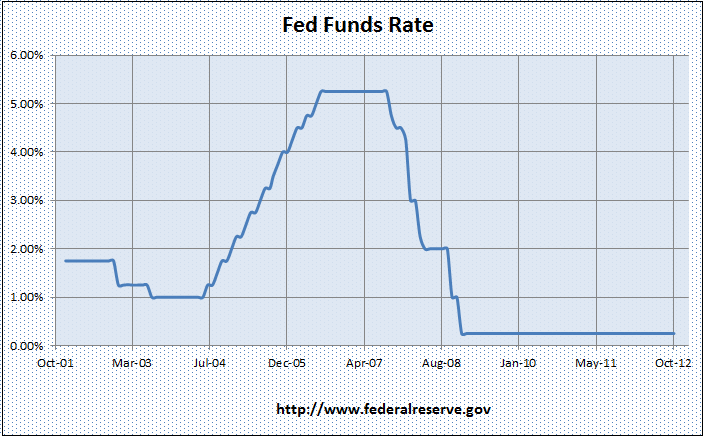Stock Market - Credit Bubble to Burst?
July 30, 2013 Fed funds rate have stayed near 0 - 0.25 for more than 4 and 1/2 years. What it means to the US economy and stock market? As long as interest rate is low, the banks can borrow money at near zero percentage interest rate and lend others (people) at high interest rate through mortgage, credit cards and other kind of loans etc. It offers great advantages of US banks to make lot of money which in turn can protect them if there are many home foreclosures. At the end, it is a great bailout package for the banks and other financial institution.

At near zero interest rate encouraged home buyers to take advantages of low interest rate and they ended in buying home by pushing the price for the last over 15 months. Increasing home prices also gives bailout to the existing home owners with negative equity on their loan. Roughly 20% percent of the mortgages are having negative equity. (That is 1 out 5 home mortgages). When this percentage drops to 10%, then banks will be in very good position and there is no question of default or bankruptcy. We will get there by end of next year and that would be end of housing crisis.
But to fix the housing crisis, we had to go through enough credit bubble. Once the credit bubble bursts, the outcome will be very severe and it will mainly affect the banks as well as consumers (always). There will not be any credit card offer with 0% interest rate on purchases or balance transfer for 6 - 12 months promotion. People will have to keep eye on their spending. If we get into hyperinflation as the interest rates goes up, investment demand on agriculture products (corn, soy, etc) will shoot up along with precious metals gold, silver, etc.
Even then there is a good news that US home prices have seen bottom eventhough home prices rise less percentage compared to inflation.